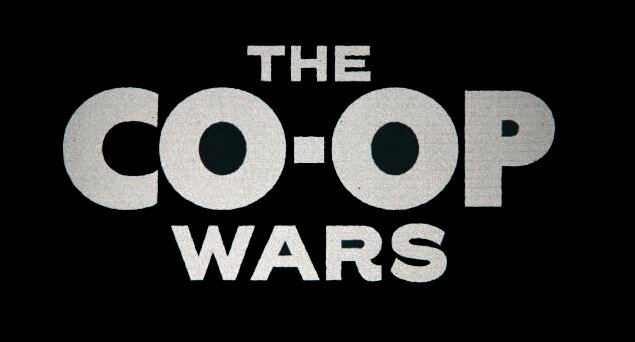Screening and panel to spur discussion of how members can work together to build a thriving and harmonious co-op culture in the region
As the Chicago area experiences an unprecedented surge of food co-op organizing, a coalition of established and start-up co-ops have decided to examine a cautionary tale from the nation’s most successful food co-op scene. The Chicago-area co-ops seek to use the online screening of the film and subsequent panel discussion to answer the question, “How are we effectively countering the relationship dynamics which led to the Co-op Wars and building solidarity with one another and the broader cooperative movement in the city?”
THE CO-OP WARS will be screened on the Show&Tell online platform at https://watch.showandtell.film/watch/co-op-wars-chicago from September 29 to October 5. Tickets will be available for a suggested donation of $20, although audience members will be able to choose their donation level. Proceeds will support the distribution of the film and the development of startup co-ops in the area. A live panel featuring the filmmakers and representatives of the participating co-ops will be held via Zoom on Wednesday, October 5 at 7:00pm (a link will be available to audience members on the Show&Tell page).
The screening and panel are sponsored by Dill Pickle Co-op in Logan Square, Sugar Beet Co-op in Oak Park as well as four start-up co-ops: Southside Co-op, Prairie Food Coop, Chicago Market, and Wild Onion Co-op.
“Since Chicago doesn't have a historic vibrant co-op culture, we want to use the film as a tool as the startup co-ops prepare their entry into the market,” said Victoria Birkbeck, chair of the board at Dill Pickle Co-op, “The Dill Pickle is the only co-op in the city of Chicago since 2009. Hyde Park Co-op had a long reign from 1932-2008 before they closed. Sugar Beet Co-op, on the border of Chicago in Oak Park, Illinois, was established in 2014.”
The Twin Cities’ food co-op sector, on the other hand, boasts seventeen locations, tens of thousands of member-owners and hundreds of millions of dollars in sales. But this success story had a rocky beginning: Soon after an initial period of explosive growth in the early 1970s, the “Co-op Wars” erupted in the Twin Cities, a heated and sometimes violent conflict initiated by a secretive Marxist group calling itself the Co-op Organization or C.O. The C.O. was able to exploit real divisions in the counterculture community over issues racial and class inclusion, healthy vs. cheap food, and strategies of social change to attempt to subvert the new and imperfect democratic practices of the co-ops. Although unique to its time and place, the story’s conflicts are sure to have resonance for any activist who has sought to make radical change in diverse coalitions.
